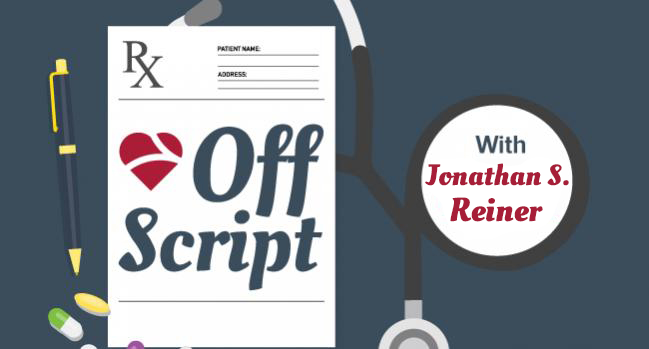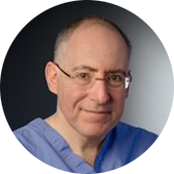Talking Politics With Patients? In This Election, I Can’t Hold My Tongue
Some doctors strive to remain apolitical with patients. In the most fractious election in US history, I’m moved to speak.

As we near the finish line for arguably one of the most consequential, and most contentious, presidential elections in American history, I’m reminded of Tip O’Neill, who famously said, “All politics is local.”
The late Massachusetts politician and former Speaker of the House believed that the things that matter most to people are not grand philosophical debates such as the size of government, or fiscal policy, or the role of the United States in global affairs. What’s really important to the voting public is what happens close to home.
During this election cycle, many of these “kitchen table” issues involve health. People care about access to insurance, affording their medications, and regaining their reproductive rights. They worry they’ll end up bankrupt if they need to be hospitalized, or about whether they’ll be able to care for aging parents or find a provider who accepts their insurance. Gun violence uniquely infects our country and afflicts our schools. These are existential problems for too many people in the United States, and as physicians, they should be important to us too.
Some doctors strive to remain apolitical. But the American Medical Association does not discourage physicians from expressing political views. The AMA’s Code of Medical Ethics states, “It is laudable for physicians to run for political office; to lobby for political positions, parties, or candidates; and in every other way to exercise the full scope of their political rights as citizens.”
Over the last decade I’ve become increasingly involved in the intersection of medicine and politics. I’ve drafted a bill, lobbied on Capitol Hill, testified before a congressional committee, written a variety of editorials, and serve as a medical analyst on television.
I also work in Washington, DC, a city with huge socioeconomic and healthcare disparities. It’s a place where politics is woven into the fabric of daily life. I treat the well insured and the uninsured. I see members of Congress who receive their primary care at the US Capitol’s Office of the Attending Physician (the country’s most exclusive concierge practice) as well as people with DC Medicaid who often rely on the city’s clinics or emergency rooms for their primary care. I have patients in my practice whose medications are couriered to their homes and others who rely on an unreliable, scrounged supply of pharmaceutical samples. I’ve cared for unhoused people who’ve had their prescriptions stolen from their nightly shelter.
Recently, I treated a patient who experienced a large myocardial infarction while visiting DC from another state. He was sick when he arrived, and he received the typical array of aggressive emergency interventional and medical therapeutics that have revolutionized cardiovascular medicine over the last two decades. He was taken quickly to the cath lab, and his occluded coronary was recanalized and stented. He required invasive hemodynamic monitoring, and he teetered on the edge of mechanical support for several days. Eventually he rallied as he gradually began to tolerate contemporary guideline-directed medical therapy. We started to plan for discharge.
There was just one problem—he was uninsured. Because he was uninsured, his medications would be unaffordable (without insurance Entresto costs about $700 per month and Jardiance about $600). Without insurance, the patient would find it nearly impossible to see a cardiologist who specializes in advanced heart failure back home, and without insurance if he needs a defibrillator, he’ll have to do without it. Happily he’ll likely survive his near catastrophic event, but it will almost certainly bankrupt him.
It doesn’t have to be this way.
For far too long physicians have loudly complained that the mechanics of the healthcare system are broken, that EMR charting has replaced patient care, that our reimbursement system incentivizes volume over quality, and that our patients suffer the consequences. But when national politics impacts our patients, many of America’s doctors remain silent, both in the public arena and in the clinic.
The problems our patients face are now irreversibly politicized and polarized. Twenty-seven million Americans still have no insurance, serious illness often saddles people with irresolvable debt, 29% of women live in states where abortion is unavailable or severely restricted, and medications are often unaffordable. We also live in a time of mass misinformation where prominent people openly deny science.
During a clinic visit not long ago, I encouraged a vaccine skeptical patient to get a COVID booster, but she just laughed and waved me away. After the visit, she sent me a note on our EMR portal, along with an article alleging that COVID vaccines have killed more than a million Americans. I told her again why I thought she was wrong and why the vaccine would protect her from serious illness. She remained unconvinced. I’ll keep trying.
These conversations we have with our patients aren’t abstract, they’re brutally real. Almost every week, a patient tells me about a problem acquiring one or more of their drugs. A breakthrough medication isn’t a breakthrough if the patient can’t afford it. Not long ago, a congressman who was thrilled that his LDL plummeted after we started a PCSK9 inhibitor was frustrated that his insurance forced him to switch medications every 6 months when his formulary changed its list of preferred drugs. A discussion concerning pharmacy benefit managers suddenly seems less arcane when it’s your medication.
Often when physicians publicly advocate for change, we’re told to mind our own business. In 2018, the National Rifle Association tweeted: “Someone should tell self-important, anti-gun doctors to stay in their lane.” Fred Guttenberg, whose 14-year-old daughter Jaime was killed at Parkland High School in 2018 responded: “I am thankful for the doctors who truthfully described how AR-15 bullets destroyed my daughter’s body. . . . Sometimes truth hurts.”
I believe that physicians must be active purveyors of the truth, and that dialogue starts in the clinic.
The American College of Cardiology reminds us: “Cardiovascular disease is the number one cause of death and the leading driver of healthcare costs in the US. We own the problem. We must own the solution.”
There’s much for us to do. Let’s not shy away from hard conversations.
Off Script is a first-person blog written by leading voices in the field of cardiology. It does not reflect the editorial position of TCTMD.
Jonathan S. Reiner, MD, is a Professor of Medicine and Surgery at the George Washington University School of Medicine &…
Read Full Bio

Comments